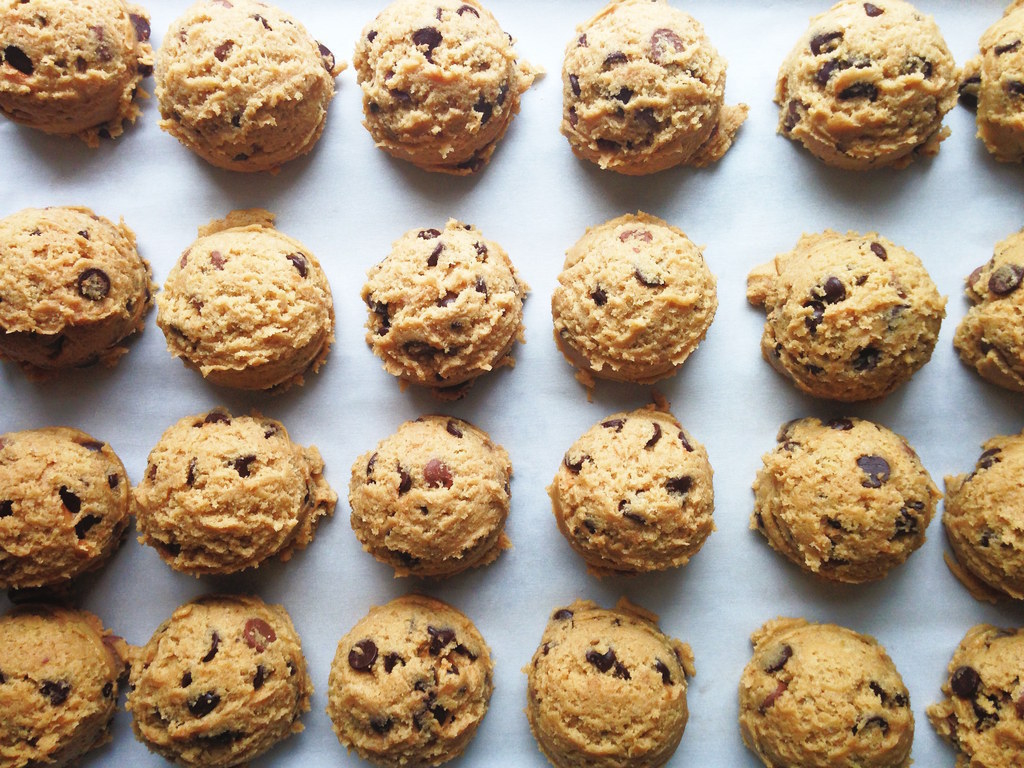
Raw Cookie Dough: Is It Safe to Eat?
Introduction:
Raw cookie dough is undeniably tempting. The sweet aroma of freshly made dough, combined with the delicious taste of chocolate chips or other mix-ins, can make it difficult to resist taking a sneaky bite before the cookies are baked. However, concerns about the safety of consuming raw cookie dough have arisen due to the presence of raw eggs and raw flour, which can potentially harbor harmful bacteria. In this comprehensive guide, we will explore the risks associated with raw cookie dough and provide guidelines on how to enjoy it safely.
Section 1: The Risks of Consuming Raw Cookie Dough
1.1 Raw Eggs:
One of the primary concerns with consuming raw cookie dough is the presence of raw eggs, which can be contaminated with Salmonella. Salmonella is a type of bacteria that can cause foodborne illness, resulting in symptoms such as diarrhea, abdominal cramps, fever, and vomiting. The risk of Salmonella contamination in eggs is relatively low but still exists. To minimize this risk, it is important to use pasteurized eggs or egg substitutes when making raw cookie dough.
1.2 Raw Flour:
Raw flour has also been linked to foodborne illnesses. Flour is derived from grains, such as wheat, and it is typically not treated to kill bacteria during processing. Therefore, raw flour can potentially contain harmful pathogens like E. coli. In 2016, an outbreak of E. coli infections was traced back to contaminated raw flour, which resulted in numerous cases of illness. It is essential to note that simply using heat-treated flour or baking the dough alone may not be sufficient to eliminate the risk entirely.
Section 2: Safe Alternatives for Enjoying Cookie Dough
2.1 Pasteurized Eggs:
To eliminate the risk of Salmonella from raw eggs, it is advisable to use pasteurized eggs in your cookie dough. Pasteurized eggs have been treated to kill any potential bacteria, making them safe to consume without cooking. Pasteurized eggs can be found in some grocery stores or can be prepared at home by heating eggs to a specific temperature to kill bacteria while maintaining their liquid state.
2.2 Egg Substitutes:
Alternatively, you can use egg substitutes that are specifically made to replace raw eggs in recipes. These substitutes are typically pasteurized and do not carry the risk of Salmonella contamination. They are available in liquid or powdered form and can be found in many grocery stores.
2.3 Heat-Treated Flour:
To reduce the risk of E. coli contamination from raw flour, you can heat-treat the flour before using it in your cookie dough. Heat-treating flour involves baking it in the oven at a specific temperature for a designated time to kill any potential bacteria. This process should be done separately from making the dough itself. Heat-treated flour can be stored for later use or used immediately to make safe raw cookie dough.
Section 3: Precautions for Enjoying Raw Cookie Dough Safely
3.1 Store-Bought Cookie Dough:
If you prefer the convenience of store-bought cookie dough, ensure that the package explicitly states that it is safe to eat raw. Some companies now offer cookie dough specifically formulated to be consumed without baking. These products are typically made with pasteurized eggs and heat-treated flour, minimizing the risks associated with raw dough.
3.2 Homemade Cookie Dough:
When making homemade cookie dough, follow these guidelines to ensure safety:
a) Use pasteurized eggs or egg substitutes.
b) Heat-treat the flour before using it in the dough.
c) Avoid tasting the dough during preparation, as this can increase the risk of exposure to bacteria.
d) Wash your hands thoroughly before and after handling raw ingredients.
3.3 Enjoying Raw Cookie Dough in Moderation:
While taking precautions can reduce the risk, it is essential to remember that consuming raw cookie dough, even when made with safe ingredients, still carries a small risk of foodborne illness. Enjoy raw cookie dough in moderation and be mindful of your overall diet and health.
Conclusion:
Raw cookie dough can be a delicious indulgence, but it is essential to understand and mitigate the associated risks. By using pasteurized eggs, egg substitutes, and heat-treated flour, you can significantly reduce the likelihood of foodborne illnesses caused by consuming raw dough. Whether you choose to make homemade cookie dough or opt for a store-bought alternative, always prioritize food safety by following the guidelines outlined in this comprehensive guide. Remember, enjoying raw cookie dough can be a treat, as long as it is done safely and in moderation.
- Benefits of Delta 8 THC Tinctures - July 19, 2023
- Raw Cookie Dough: Is It Safe to Eat? - July 11, 2023

